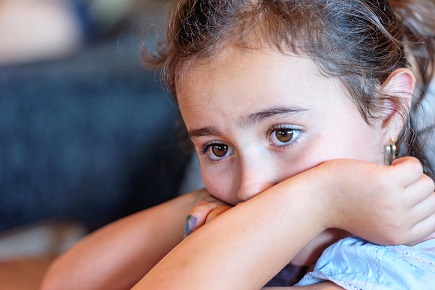
The number of young people reporting concerns around mental health has risen by 10% in one year according to Mission Australia’s Youth Survey 2018 released today.
Four in ten (43%) young people identified mental health as the top issue facing Australia today – up from 33% in 2017 and doubling since 2016. Mental health also entered the top three issues of personal concern in the annual survey which was completed by more than 28,000 young Australians.
The top three personal concerns were coping with stress (43%), school or study problems (34%) and mental health (31%). In previous years, the third most cited item was body image (30%), which moved to the fourth spot in 2018. Each of the top four personal concerns have strong links to mental health.
Mental health the top issue in every state
While in 2017, alcohol and drugs was the most important issue in Australia according to young people in Victoria, the Northern Territory, Western Australia and South Australia, mental health is now the top issue in every State and Territory for the first time.
The Youth Survey 2018 also shows that many young people reported feeling confident in their ability to achieve their study or work goals after finishing school.
The top three plans for young people after they finish school were to go to university, get a job or plans to travel/gap year. However, almost one in ten young people reported low levels of confidence.
Principals and teachers 'at the frontline'
Mission Australia CEO, James Toomey, applauded the important work that is already being done in schools to address the issue of mental health.
“Principals and teachers are at the frontline, and we must do everything to support them to best support young people’s needs,” Toomey told The Educator.
“It’s clear that schools must continue to play a key role in promoting mental health and wellbeing, including coping with stress.”
Toomey said the education system must ensure all principals and schools are funded and supported to deliver the right supports to their students.
“School leaders can, and do, prioritise providing opportunities and safe spaces within their schools for young people to have discussions about difficult mental health issues and to practice skills, such as when it is ethical to break a friend’s trust and how students can help their friends to navigate available support options,” he said.
Toomey said programs that are targeted at students who are particularly at risk of experiencing mental health concerns – such as those transitioning from primary to secondary school or secondary school to university, and those about to commence stressful exam periods such as Year 12 exams – are also “incredibly valuable”.
“It’s also important that school leaders continue to engage the wider school community – including students, staff and parents – to help reduce instances of mental ill health among young people,” Toomey said.
“There must be a range of opportunities to allow the school community to build relevant and practical skills and knowledge and understand how to provide pathways from peer support to professional help.”
'Community links are vital'
Toomey said family members and friends need to know how to navigate the variety of services and information sources, and will often find it useful to receive targeted information about ‘mental health first aid’ and other practical supports that exist.
“Fostering strong links between schools and a range of evidence-based and accredited mental health providers and e-health supports is also vital, as we know it helps to provide access for young people to mental health care services that are appropriate for their individual needs,” he said.
“Of course, teachers are often the first to recognise and identify the signs and symptoms of mental and behavioural disorders in young people and so it’s important that they are adequately supported so that they have the time and confidence to address the mental health needs of students.”
He said teachers and school counsellors must also be encouraged to provide early support for students who may be showing warning signs of experiencing a mental health concern.
“Principals are working hard to lead a culture of trust in their schools, so that young people feel comfortable turning to adults at school to seek advice and support,” Toomey said.
“We know that children and adolescents who are mentally well are more likely to succeed at school and their post-school aspirations, so there are many reasons to invest in and prioritise mental health and wellbeing programs at school and in the broader community.”


